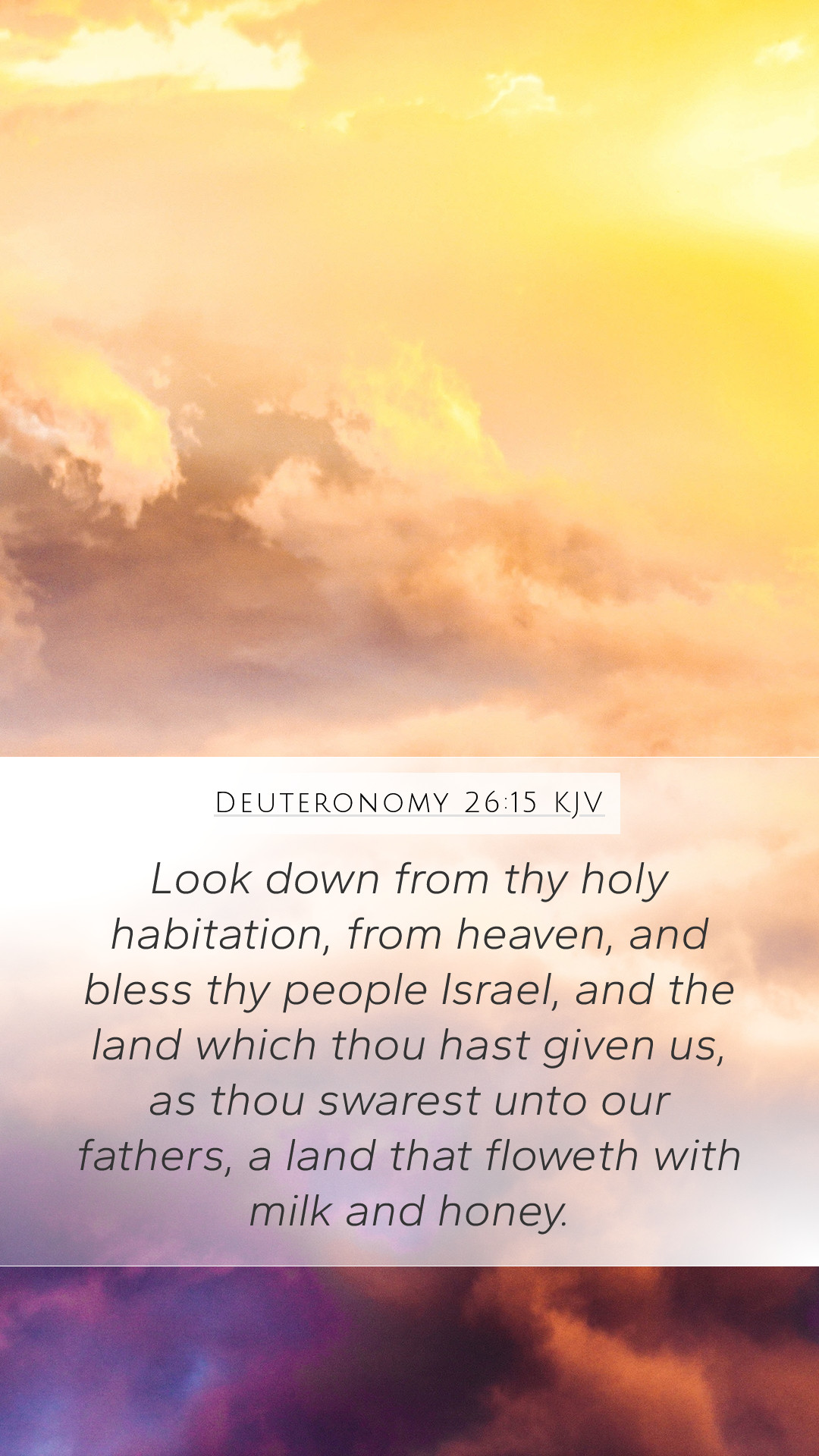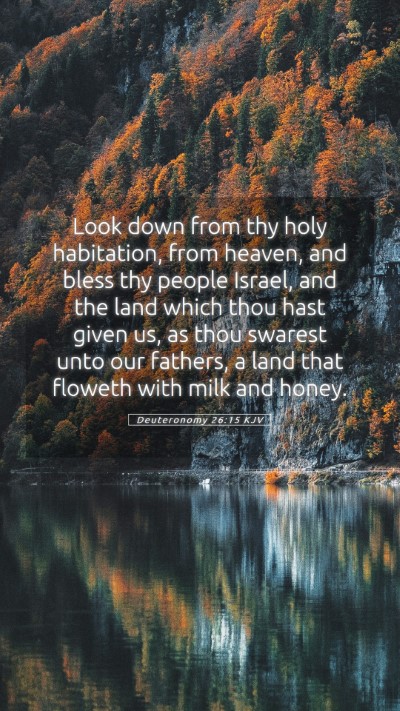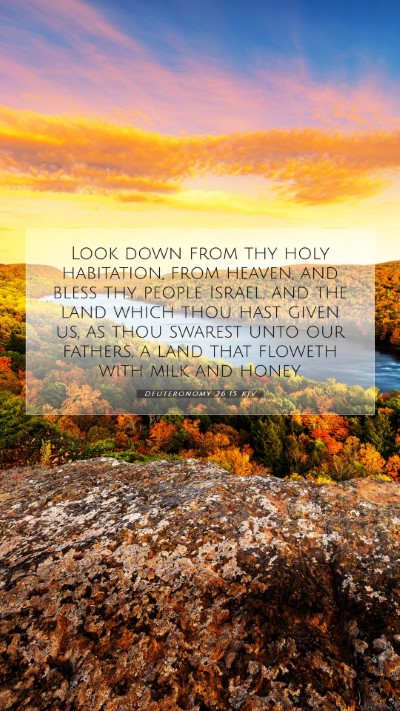Understanding Deuteronomy 26:15
Bible Verse: Deuteronomy 26:15 - "Look down from thy holy habitation, from heaven, and bless thy people Israel, and the land which thou hast given us, as thou swearest unto our fathers, a land that floweth with milk and honey."
Overview
In this verse, the Israelites are asking God to look down from heaven and bless them and the land they inhabit. It reflects their dependence on God for sustenance and prosperity, particularly in the context of the covenant He made with their ancestors.
Interpretation and Commentary
-
Matthew Henry's Commentary:
Henry emphasizes the priestly role in invoking God’s blessing over Israel. He highlights that the blessings are tied to their covenant with God, suggesting that such blessings are conditional upon their faithfulness to God’s commandments. The mention of the land flowing with milk and honey symbolizes abundance and God’s provision.
-
Albert Barnes' Notes:
Barnes points out that this prayer is a reflection of Israel's history and God’s promises. The request for blessing is rooted in the acknowledgment of God’s past promises to the patriarchs. He also notes the importance of recognizing God’s supreme position as the one who dwells in heaven, from where He bestows blessings upon His people.
-
Adam Clarke's Commentary:
Clarke elaborates on the significance of God's holy habitation, emphasizing that it is a place of purity and righteousness. He notes that the request for blessing not only encompasses physical prosperity but also spiritual well-being, suggesting that the land itself is a manifestation of God's covenantal relationship with Israel.
Key Themes and Insights
-
The Significance of Blessings:
Blessings from God signify His favor and guidance. The Israelites were constantly reminded of their covenant relationship with God, which was based on mutual fidelity and loyalty.
-
Covenantal Promises:
The reference to the land flowing with milk and honey serves as a reminder of God's promises to their ancestors and the fulfillment of those promises as they enter the Promised Land. This illustrates the continuity of divine promise throughout generations.
-
Prayer and Dependence:
The prayer aspect of the verse denotes relationship—acknowledging dependence on God for blessings in their lives. This highlights the importance of turning to God in prayer for sustenance and guidance.
Application of the Verse
In applying Deuteronomy 26:15 to our lives today, one must consider how God's blessings impact our everyday existence. This verse encourages believers to:
- Recognize the continual need for God’s intervention and grace in their lives.
- Remind themselves of the spiritual and physical blessings they have received from God.
- Engage in prayer, asking for God’s favor not just for personal gain, but in the context of the community and the world.
Related Bible Verses
- Exodus 3:8 - God's promise of a land flowing with milk and honey.
- Psalm 115:14 - A prayer for God's blessings upon His people.
- Deuteronomy 28:1-14 - The blessings of obedience to God’s commandments.
Final Thoughts
Deuteronomy 26:15 is a profound reminder of the relationship between God and His people. Through this verse, we find not only the historical context of Israel's plea for blessings but also a model for modern prayer life and dependence on God's providence. Understanding such Scriptures enrich our faith and enhance our spiritual journey.


